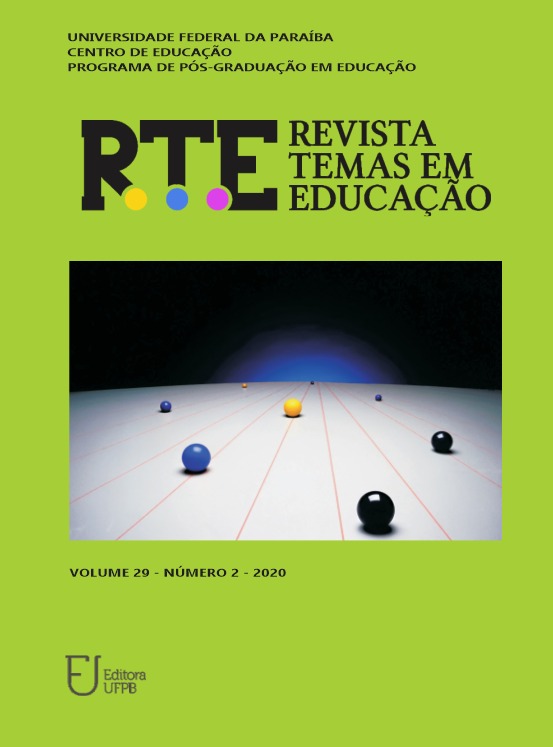THE APPLICATION OF A GAME TO MOTIVATE THE TEACHING-LEARNING PROCESS IN ENGINEERING AND EXACT SCIENCES COURSES
THE APPLICATION OF A GAME TO MOTIVATE THE TEACHING-LEARNING PROCESS IN ENGINEERING AND EXACT SCIENCES COURSES
DOI:
https://doi.org/10.22478/ufpb.2359-7003.2020v29n2.51646Keywords:
Ludic activities, Teaching-learning, GamesAbstract
Games and classes scripted with game language are increasingly present at the university and are important strategies of enchantment and motivation for a faster and closer to real life learning. For generations accustomed to playing, the language of challenges, rewards, competition and cooperation is attractive and easy to perceive. Collaborative and individual games; competition and collaboration; of strategy, with well-defined stages and skills become increasingly present in the various areas of knowledge and levels of education. In this line of reasoning, this work has as main objective to present the application of a game in classes of the disciplines of Calculus I and Algorithms and Computer Programming of the undergraduate courses in Civil Engineering, Mining and Production, Computer Science and Physics Undergraduate of the Federal University of Goiás - Regional Catalão. The purpose of this research was to analyze if the students feel more motivated to learn in play classes compared to traditional classes adopted in the institution. The students who participated in the survey answered questionnaires. The obtained results were analyzed and presented in the form of graphs for a better understanding of the information. Therefore, it was observed that students prefer the classes in higher education are taught by the combination of both methodologies: traditional and playful, since one complements the other.
Downloads
Downloads
Published
How to Cite
Issue
Section
License
Authors who publish in this journal agree to the following terms:
. Authors retain the copyright and grant the journal the right to first publication, with the work simultaneously licensed under the Licença Creative Commons Attribution that allows the sharing of the work with acknowledgment of authorship and initial publication in this magazine. . Authors are authorized to assume additional contracts separately, for non-exclusive distribution of the version of the work published in this journal (eg, publishing in institutional repository or as a book chapter), with acknowledgment of authorship and initial publication in this journal.
. Authors are permitted and encouraged to publish and distribute their work online (eg in institutional repositories or on their personal page) at any point before or during the editorial process, as this can generate productive changes, as well as increase impact and citation of the published work (See O Efeito do Acesso Livre).



















